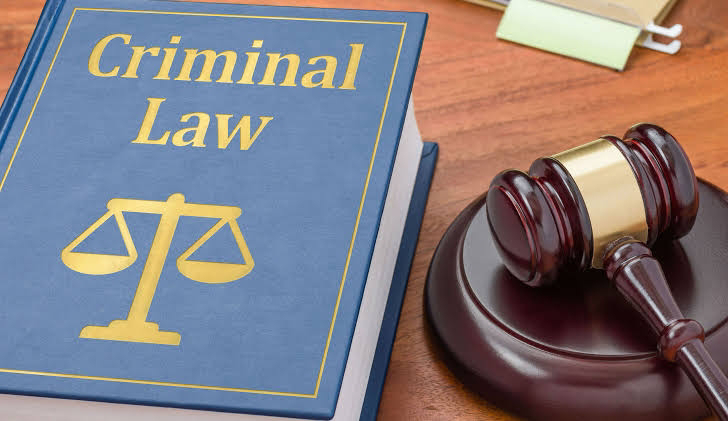Section 182 and 211 of Indian Penal Code, 1860
Before we began to explain about IPC section 182 and 211, we must know what is the Indian Penal Code is,
The Indian Penal Code (IPC) is a comprehensive criminal code that governs various aspects of criminal law in India. It encompasses a wide range of offenses and their corresponding punishments. The code is universally acknowledged as a cogently drafted code, ahead of its time. It has substantially survived for over 150 years in several jurisdictions without major amendments. But some amendments which were necessary to deal with the ever-evolving crimes of the modern times were made to the code.
This report aims to provide an overview of two specific sections of the IPC, namely Section 182 and Section 211. These sections deal with false information and false charges, respectively.
Section 182 of the Indian Penal Code reads, “False information, with intent to cause public servant to use his lawful power to the injury of another person—Whoever gives to any public servant any information which he knows or believes to be false, intending thereby to cause, or knowing it to be likely that he will thereby cause, such public servant
(a) to do or omit anything which such public servant ought not to do or omit if the true state of facts respecting which such information is given were known by him, or
(b) to use the lawful power of such public servant to the injury or annoyance of any person, shall be punished with imprisonment of either description for a term which may extend to six months, or with fine which may extend to one thousand rupees, or with both.”
Objectives or Reasons of IPC Section 182,
Section 182 of the IPC addresses the issue of providing false information to a public servant. It states that whoever gives false information with the intention to cause a public servant to use his lawful power to the injury of another person shall be punished with imprisonment or a fine, or both. The section aims to deter the misuse of power by individuals who fabricate information to manipulate the actions of public officials for personal gain or to harm others. This offense not only obstructs the administration of justice but also undermines public trust in the system. Some people like to do pranks on others either for fun or to insult someone and sometimes it becomes serious when it is used to harm someone. Public servants have responsibilities and duties and they are also liable for others, a prank with them is serious and can be dangerous, and intentionally doing it to harm someone is a crime or a serious offence.
The Main Ingredients of Section 182 of the Indian Penal Code Are:
The information given to the public servant must be false.
The informant should know or be aware of the fact that the information is false.
The public servant should not be aware of the fact that the information he/she receives is false.
The intention behind giving the false information is either to make the public servant use his/her power to harm or injure or to do or not to do
Section 211 in The Indian Penal Code
211. False charge of offence made with intent to injure.—Whoever, with intent to cause injury to any person, institutes or causes to be instituted any criminal proceeding against that person, or falsely charges any person with having committed an offence, knowing that there is no just or lawful ground for such proceeding or charge against that person, shall be punished with imprisonment of either description for a term which may extend to two years, or with fine, or with both; and if such criminal proceeding be instituted on a false charge of an offence punishable with death, 1[imprisonment for life], or imprisonment for seven years or upwards, shall be punishable with imprisonment of either description for a term which may extend to seven years, and shall also be liable to fine.
Objective of Section 211 of the IPC,1860
Section 211 of the IPC deals with the act of making a false charge of an offense with the intention to cause harm to someone. It states that whoever, with malicious intent, falsely charges someone with an offense shall be punished with imprisonment and a fine. This section emphasizes the importance of honesty and fairness in lodging complaints and filing charges. False charges can have severe consequences for the accused, leading to wrongful arrests, damage to reputation, and emotional distress. Section 211 aims to deter such malicious actions and safeguard the rights of individuals from baseless accusations. In basic terms, section 211 of the Code institutes fictitious or false criminal proceedings against someone, or falsely accuses someone of committing a crime. When someone is charged of committing an offense under this section, it must be understood that the person who made the unsubstantiated false claims should have known they were false whereas section 182 focuses on someone who provides any public servant with the false information which he/she know is not true with the motive of causing harm to someone.
Ingredients Of Section 211 Of IPC:
The Accused must initiate a criminal proceeding
There should not be any legal grounds to institute a legal proceeding
The accused must know about the fact that there is no legal ground or reasons
The accused should have a prior intention to cause injury to the person on whom the criminal proceedings were initiated.
Article Written By,Ronith Maity, Student, 7th Semester,Department of Law, Hazra Campus, University of Calcutta.




![Freedom of Speech in India [Indian Supreme court and Law of Sedition]](https://blogger.googleusercontent.com/img/a/AVvXsEiGLLUmLKq5Da6xDZplasOZHKRj-jOhWPkoeuy0_Eq757tUpOiHz-xooXwIlAjF0-hmBfi-TtMIv6on_sVgBXVq4wbWwnbsqLOcNX22S8C2aSq-ZuK3vn9wWAx8tXByYOBfwc0hs6b8RJV84YNFG2greouGKjup6g8kN-xVlchW33VHdSSmrhLC1BUEVbGp=w680)





